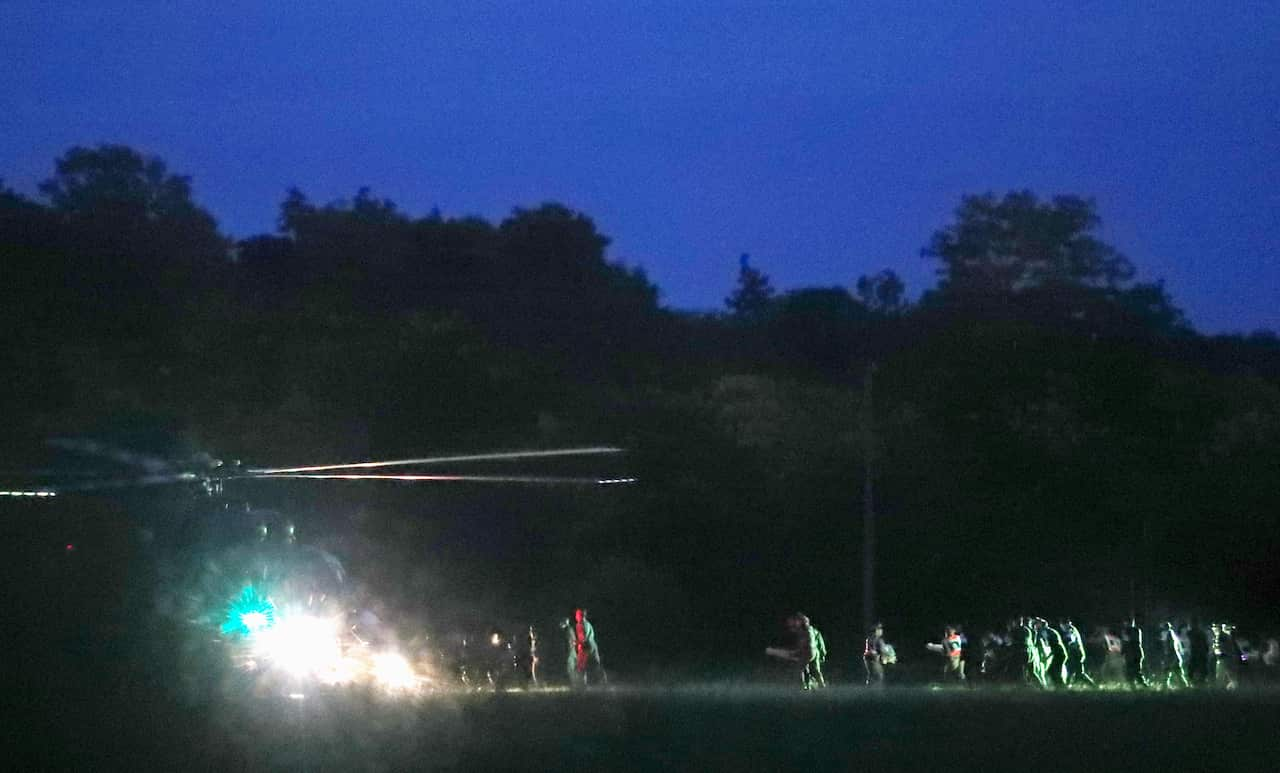The world has been captivated by the treacherous rescue of 12 young footballers and their coach from a cave in Thailand – but the team's biggest challenge yet could be their recovery.
The first eight of the rescued boys, aged between 11 and 16, are now generally “healthy and smiling” and eating solid foods in hospital after being trapped underground for more than two weeks. Two of them have a suspected lung infection and the group is still being quarantined from their parents because of the risk of infection.
But the mental trauma may be the boys' greatest challenge to overcome, psychologists tell SBS News.
Dr Meryn Lechowicz, Senior Clinical Psychologist and Clinic Manager of the Child Behaviour Research Clinic at the University of Sydney, told SBS News on Tuesday the threat to their life and safety would have been “hugely difficult and stressful for the boys”.
The group was trapped in the Tham Luang cave complex without food, natural light and knowledge of when – or if – they would be rescued.
She said it is not possible to predict how each of the boys and the coach will respond to this experience because people respond in a variety of ways to traumatic experiences such as this and we must not lose sight of how resilient people can be.

Dr Lechowicz said each boy’s experience will be unique but people going through such a traumatic experience may experience difficulties such as anxiety, sleep disturbances and nightmares.
But, she highlighted how the team seemed to be in good spirits when reached by rescue divers.
"This may have helped them to remain calm, maybe focus on conserving energy which is positive given the length of time they were in there and helped to protect them from those feelings of hopelessness," she said.
It may also help them to “develop a narrative of resilience and strength about this experience".
'No point in panicking'
Brian Evans, coordinator of the Australian Cave Rescue Commission, reiterated that a “calm and focused mentality” will have helped the boys.
“It seems like the diving teams and their coach have done an excellent job in supporting them,” he told SBS News.
“In caving, you need trust in the people around you and from the kids’ point of view, they would have felt pretty good about their prospects.
“If you get stuck in whatever way, it’s all about how you solve it and get out of the situation. There’s no point in panicking and thrashing around because the rock is not going to move.”

Dr Lechowicz said the boys may now face months of adjustment, which she said was not “abnormal or unusual” following trauma.
“Those symptoms [of adjustment] might include things like emotional distress, behavioural changes … changes to appetite, activity levels, energy levels or concentration,” she explained.
“Most people would see a reduction in these symptoms in the following months.
“For some people, they may go on to experience more severe or significant symptoms of distress and those can be related to symptoms associated with post-traumatic stress disorder, with anxiety, or with depression.
“For those individuals, I think it would be really important that there is expert assessment and support as required to help them move forward in their recovery.”
While medical treatment is key, Dr Lechowicz stressed that support from their families would be just as crucial.
“There will be millions of people around the world following this story and watching it progress with overwhelming thoughts of hope and goodwill for these boys,” she said.
“It’s probably hard for us to say at this point what impact that may have and challenge that might be for the boys in terms of their recovery.
“It will be important for the boys in their recovery to have social support, to return to their everyday lives and be part of their community which may be a challenge with international media attention."

